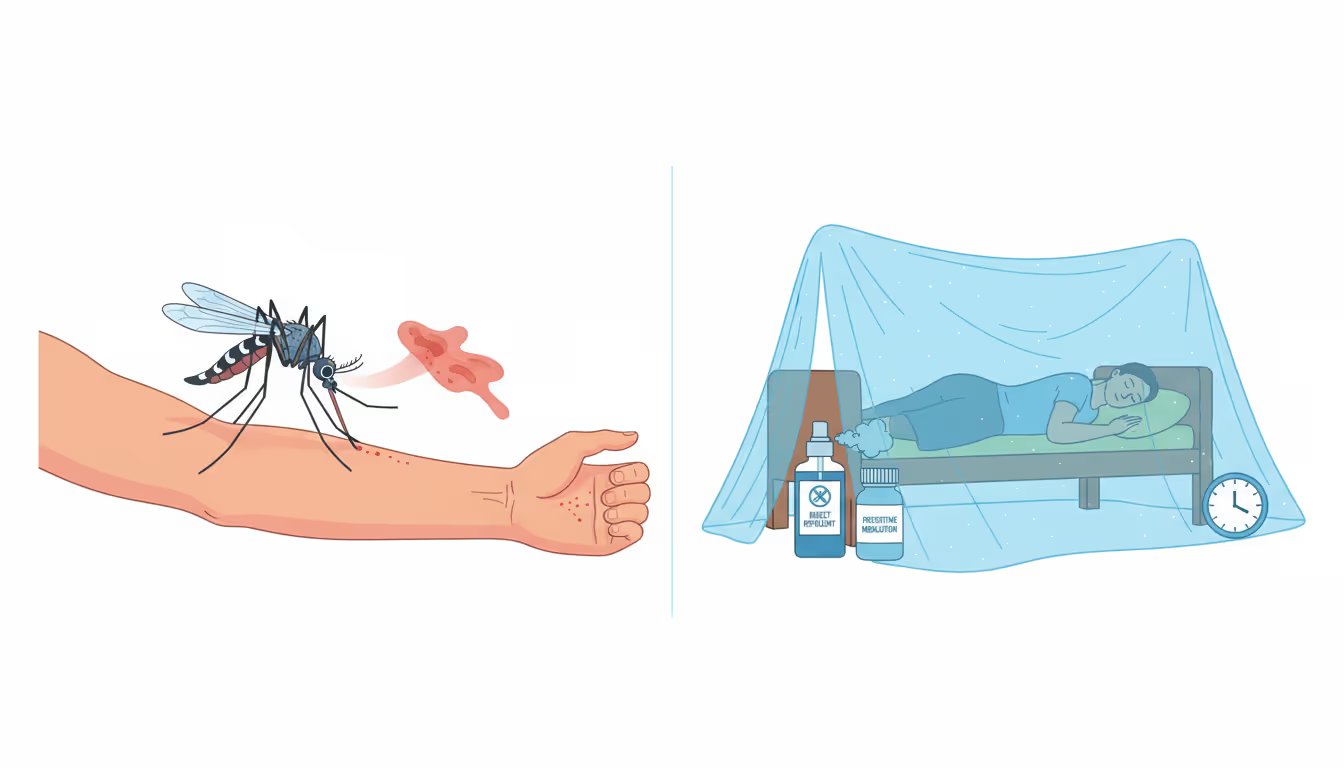
Malaria is an infectious illness caused by protozoan parasites from a specific family. It can be transmitted through the bite of an Anopheles mosquito or via a contaminated needle. The most lethal variety is *Plasmodium falciparum*. Symptoms often include recurring cycles of chills, fever, sweating, muscle pain, and headaches every few days. Additional signs can involve vomiting, diarrhea, coughing, and jaundice, which is the yellowing of the skin and eyes. Severe cases of falciparum malaria may lead to bleeding issues, kidney and liver complications, coma, and even death. Travelers visiting regions where malaria is prevalent are advised to take preventive medications if they are at risk of exposure. Malaria is treated with oral or intravenous drugs such as chloroquine, mefloquine (Larium), or atovaquone/proguanil (Malarone).Transmission primarily happens from dusk till dawn due to the night-time feeding habits of Anopheles mosquitoes. Protective measures are crucial to avoid mosquito contact, especially during these hours. These include staying in screened areas, using mosquito nets, and wearing clothing that covers most of the body. Insect repellent should be applied to exposed skin, with DEET (N,N-diethylmetatoluamide) being the most effective against various vectors. DEET concentrations vary among repellents, but formulations up to 50% are recommended for adults and children over two months old.For those not staying in well-screened or air-conditioned environments, it's advisable to use a pyrethroid-based insect spray in living and sleeping areas during the evening and nighttime. Sleeping under insecticide-treated bed nets is also recommended. These nets are more effective when treated with permethrin or deltamethrin insecticides, and pre-treated nets are available for purchase.Malaria is also known by several other names, including jungle fever, marsh or swamp fever, and paludism.




